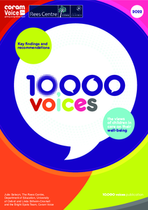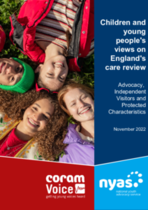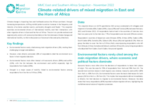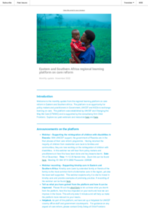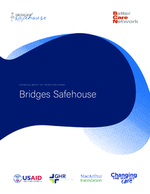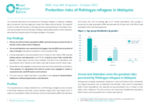10,000 Voices: The Views of Children in Care on their Well-Being (Key Findings and Recommendations)
These are the key findings and recommendations of a report produced by Coram Voice and The Rees Centre at University of Oxford that captures the views of 10,000 children and young people in care in the UK on their wellbeing. This report summarises responses collected through the largest survey of its kind from children and young people aged 4-18 years between 2016 and 2021, giving unprecedented insight into children in care’s subjective wellbeing.

